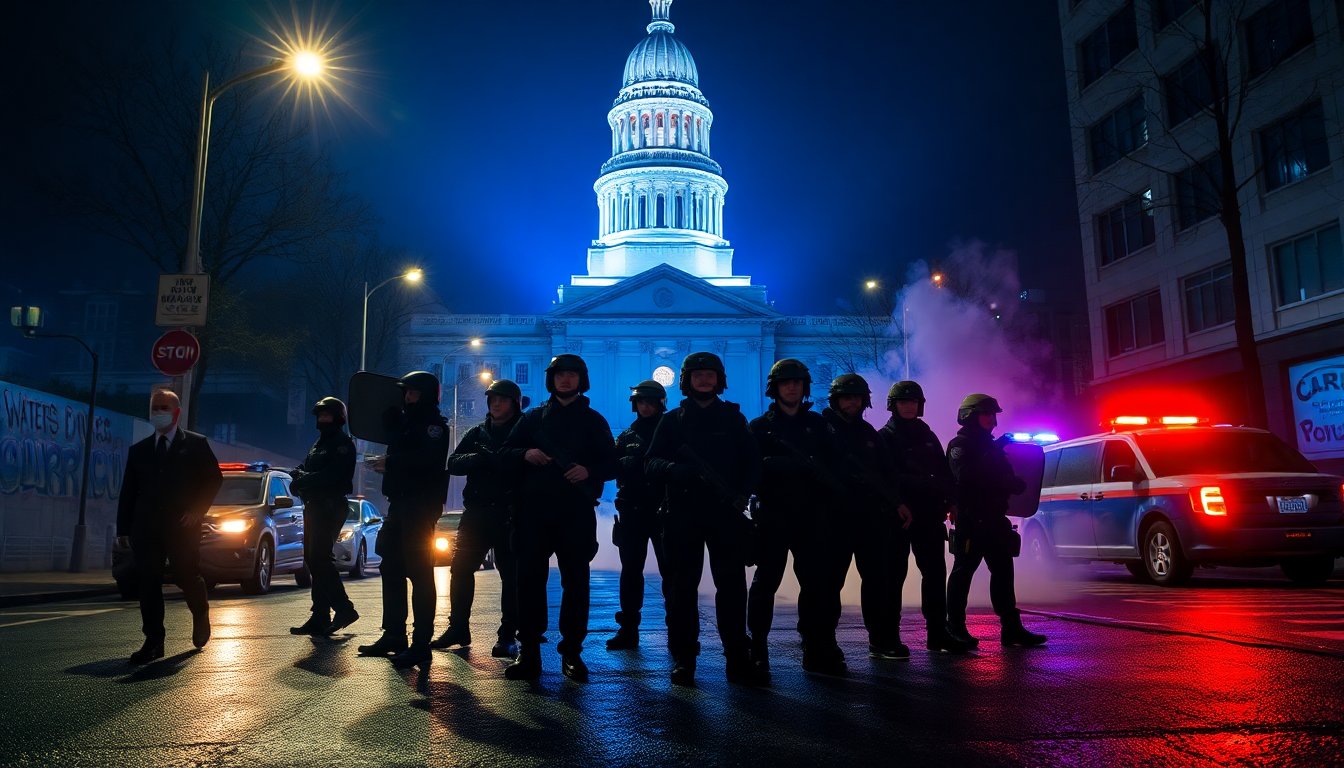Table of Contents
In a significant escalation of his administration’s tactics, President Donald Trump announced plans to deploy military personnel to Portland, Oregon. He cited the need to confront what he termed “domestic terrorists,” emphasizing his readiness to use “full force” if necessary. This declaration extends his controversial strategy of introducing federal forces to various American cities amid ongoing protests.
The president’s remarks, made via social media, included a directive to the Department of Defense to mobilize troops to safeguard federal facilities that, according to him, were under attack from groups like Antifa. However, local authorities, including Oregon’s Democratic Governor Tina Kotek, have resisted this move, arguing that Portland has effectively managed its own safety without federal intervention.
Local officials challenge federal intervention
Governor Kotek responded to Trump’s announcement, asserting that the president is overstepping his authority. In a press conference, she stated, “We can manage our own local public safety needs. There is no insurrection. There is no threat to national security.” Portland’s mayor, Keith Wilson, echoed these concerns, emphasizing the implications of federal troops on local governance.
Community reaction to military presence
Residents of Portland expressed disbelief and discontent regarding the president’s decision. Local resident Allen Schmertzler questioned the necessity of such drastic action, stating, “Where’s the emergency?” Meanwhile, John McNeur highlighted the peaceful atmosphere of the city, noting that it is “not a city that’s out of control.” These sentiments reflect a broader community perception that the situation has been exaggerated.
Political implications and local safety
Trump’s decision follows a tragic shooting incident at an ICE facility in Dallas, raising concerns about the safety of federal property. Pentagon spokesperson Sean Parnell confirmed that the Department of Defense is prepared to mobilize troops as directed by the president. However, the Oregon National Guard indicated that no official request for support had been communicated, suggesting that any deployment would require coordination with the governor’s office.
Kotek maintained that Portland’s environment remains stable, asserting, “Our communities are safe and calm.” This claim contrasts sharply with the narrative propagated by the Trump administration, which characterizes the city as a site of unrest.
Congressional response
The political furor over Trump’s plans has intensified, with Oregon’s congressional delegation—excluding Republican Representative Cliff Bentz—formally requesting the administration refrain from sending troops. They described the president’s unilateral action as an “abuse of executive authority” that risks inciting violence and undermining the balance of power between federal and state governments. This letter was directed to Trump, Defense Secretary Pete Hegseth, and Homeland Security Secretary Kristi Noem.
Historical context and future outlook
Portland, with a population of approximately 636,000, has been a focal point for protests against racial injustice, particularly following the death of George Floyd in 2020. The federal response at that time involved deploying hundreds of agents to protect federal properties from vandalism. However, recent protests have decreased in intensity, focusing primarily around the ICE building, which has been boarded up and marked with graffiti.
Despite some clashes resulting in injuries to both federal agents and protesters, the overall atmosphere in Portland has shifted toward recovery. Reports indicate increased pedestrian traffic this summer compared to pre-pandemic levels and a decline in violent crime rates, suggesting a community moving toward stabilization. Local groups have been proactive in emphasizing this recovery narrative, countering the administration’s portrayal of ongoing chaos.
As the situation develops, city officials and citizens continue to advocate for local solutions over federal intervention, emphasizing community safety and autonomy. The prospect of military presence in Portland remains contentious, with many calling for a focus on constructive support rather than militarized responses.


